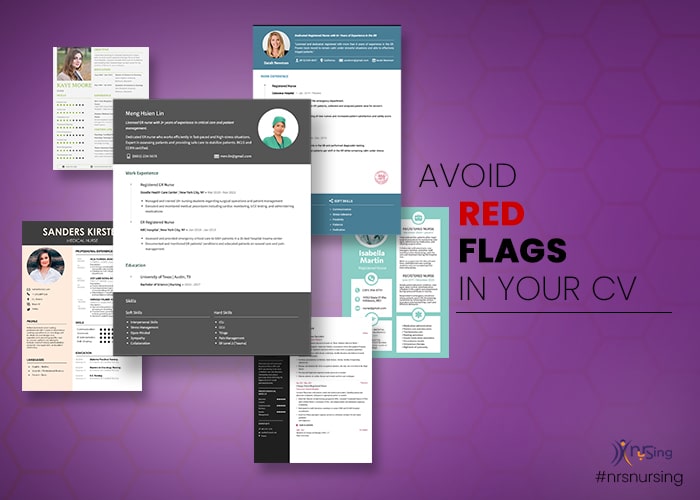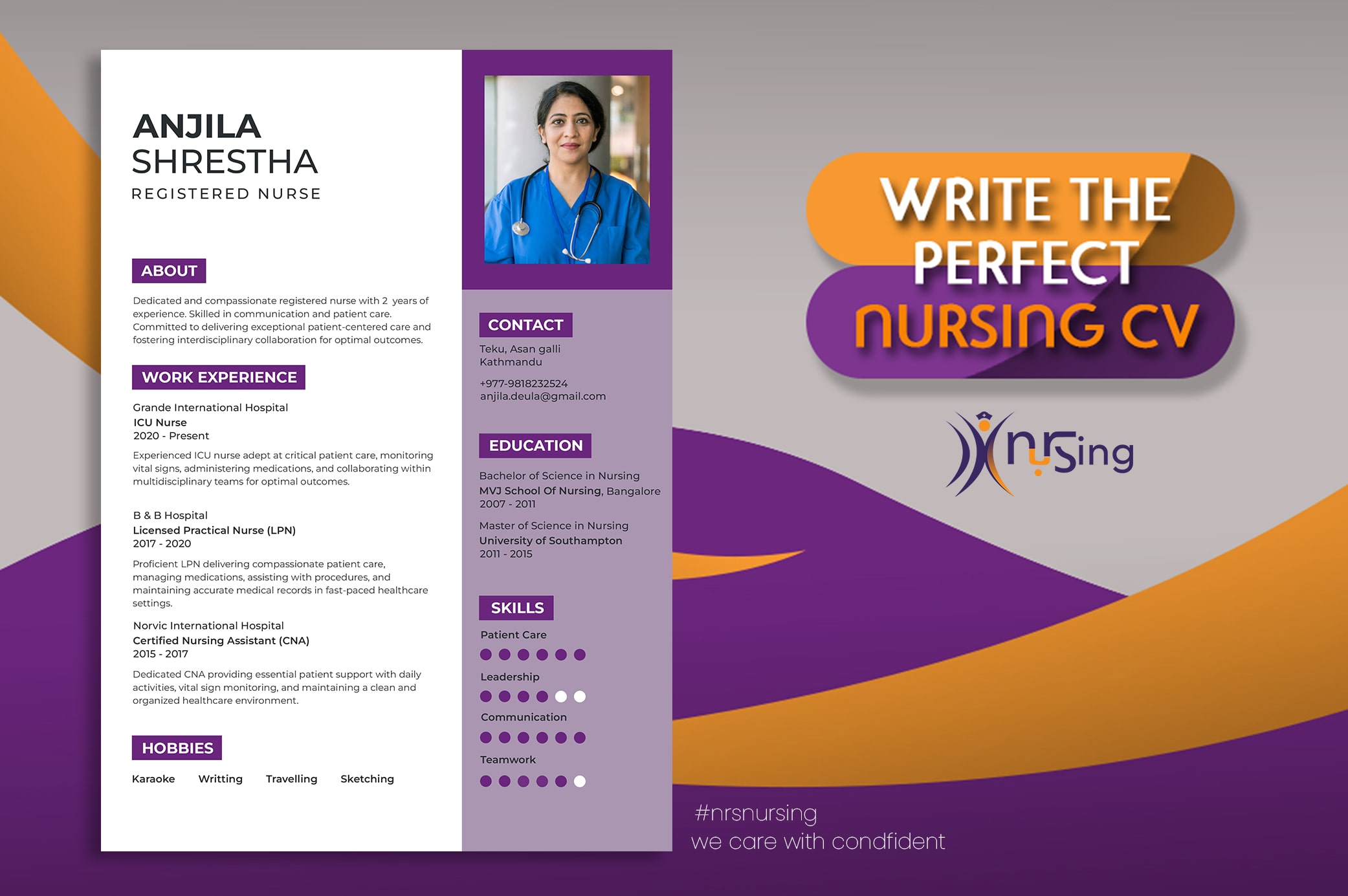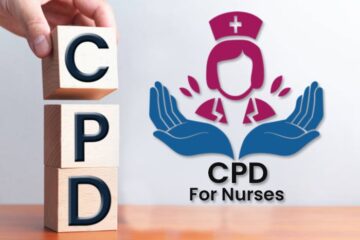An ideal nursing CV for nurses is mandatory to bag in that nursing opportunity you applied for. So if are a nurse looking for tips in making a nursing resume, this is the place! Your resume is necessary to stand out from other candidates. For nursing, it is essential as it is a tough profession with high competition. An ideal CV makes a first impression on potential employers, so it needs to demonstrate your qualifications, skills, and knowledge.
The process of making a nursing resume can be challenging without proper guidance. It is found that not just fresher nurses, but even experienced nurses are having issues with their resumes.
In this blog, we will be discussing various techniques that will help you to build a professional nursing resume. Before jumping into it let’s find out why it is important for the nurse to build a good and ideal CV.
Why make a CV?
First impression
Your CV is the first thing the recruiter will be seeing about you. Imagine what impression you create in the recruiter’s mind if you send them an unorganized and nasty resume. Do you still believe you will get hired? Don’t even dare to make such silly mistakes.
Show Attention to Detail
An organized and well-formatted CV shows that you pay close attention to detail and have pride in your job. For a nurse, this is especially crucial because paying attention to detail is essential for providing excellent care to patients.
Increase trust of the employer
A strong CV can convince a recruiter that you are the ideal candidate for the job. Having your abilities shown professionally can surely help you stand out from the crowd.
Demonstrate professionalism
Every employer expects professionalism from his employees. It is expected more in the nursing sector. A professional always tries to make his CV look outstanding. Therefore making a perfect resume for a nursing job is important to demonstrate professionalism toward the recruiters.
How to make a great Nursing CV?
It doesn’t matter if you are an entry-level nurse or a seasoned nurse in the field. There are certain ways by which you can build a great CV for nursing jobs. The major steps one must follow to build a resume that gets noticed are:
Make Your Resume Job-Specific
One of the most common mistakes job applicants make is sending a generic resume to many companies. Instead, modify your CV for each job you apply for. Read the job description thoroughly and emphasize the necessary skills and qualifications. Then, use those keywords and phrases in your resume to show that you have the qualities that the employer is looking for.
Keep it simple, concise, and professional
Making a perfect CV doesn’t mean you should make it complex. CVs with complex formatting and words are never considered a green flag. To build a great CV you must keep it simple, concise, and professional. Never try to include unnecessary information on it. Additionally don’t forget to put relevant references.
Present Your Education and Certifications
Education and certification are essential in the nursing profession. Include an apparent description of your nursing degree, certification, and any relevant qualifications on your resume. Especially if you want to make an entry-level nurse resume, you must present it appealingly. Similarly, you should not hesitate to include any specific training or additional courses that demonstrate your dedication to continued professional growth.
If you haven’t attended any training we suggest you take a few. For this, you can contact NRS nursing to acquire relevant training to expand your knowledge and growth.
Highlight your professional experience
If you already have prior experience in the Nursing field you should highlight your professional experience. This section is keen if you are looking to make an experienced nurse resume. However, if you are just about to step into this field you should not worry. Many employers seek fresh candidates for their company.
Emphasize your nursing Skills
Don’t forget to emphasize your nursing skills in your resume. This is the most essential section of your CV. Today, people care about your skills rather than your degree. This section of your resume helps you to highlight the primary skills that differentiate you as a nursing professional. Patient care, handling medications, wound care, critical thinking, and communication are all crucial nursing traits to emphasize in your nursing CV.

Red Flags in Nursing CV
If you have included the above-mentioned things in your resume then you are good to go. However, you must also be aware that there are a few red flags that must be avoided to make a perfect resume. Some of the major red flags are:
- Outdated or irrelevant references
Putting relevant references will help to make your CV stand out but putting irrelevant or outdated references is a big NO. If the recruiter contacted the reference you kept and found it relevant you are almost sure to be rejected.
- Spellings and Grammar mistakes
This happened to be a common mistake nurses made when creating resumes. They simply ignore misspellings and grammatical faults. Spelling and punctuation issues on a CV, on the other hand, will raise a red signal with the recruiter. Be attentive and avoid making such mistakes.
- Unnecessary personal details
Many nurses provide unnecessary personal details in their CVs which is completely a red flag. Recruiters look at your CV to get information about the skills and knowledge you have regarding the job; not to know about your details. Providing a name and date of birth is enough for it.
- Frequent job switch
Another thing that should not be included in your resume is your frequent job switch. No employer wants you to work just for a few months and walk away. If you include your several job switches, it will indicate that you will be unable to commit long-term to the organization, which will result in the position being rejected.
To sum up, there is nothing like rocket science in building a CV for a nursing job. You must not make silly mistakes as mentioned above and follow the basic steps. After that, you are done with your resume which is more likely to get noticed. If you need more help in preparing a CV you can use a different nursing CV format. You can also get training from our expert trainer at https://nrsnursing.com/




